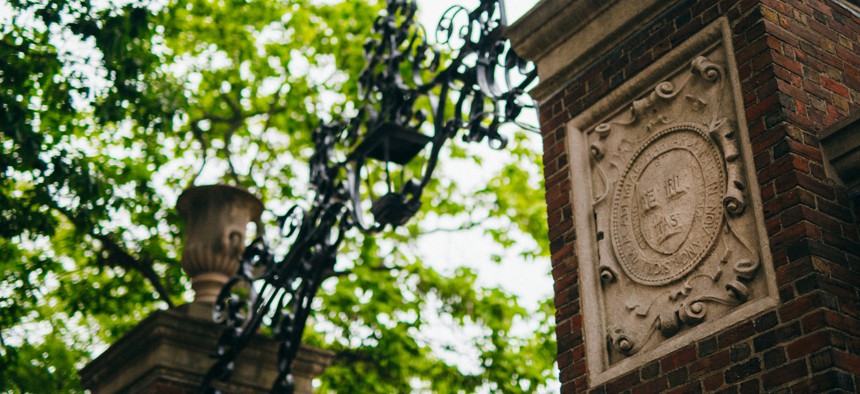Steve Kelman reports from his 50th college reunion

Getty Images
After a two-year delay due to the coronavirus pandemic, the Harvard College class of 1970 got the chance to reconnect.
I had my 50th college reunion this last weekend—though actually it occurred 52 years after my graduation in 1970, covid-delayed by two years. I am a sucker for these kinds of events, so I was there, and I will say it was a lot of fun.
I learned a number of things that surprised me. One was that half those attending were still working full time (at age 73 or 74). Also, there was a memorial service for classmates who had died. I counted the number, and it was about 200 out of 1500 in the class. To me, that only about one out of seven people have died 50 years after they turned 21 is a sign of a group with blooming health.
For people who are approximately 73 years old, they have, as a group, aged very gracefully. Almost nobody looked even vaguely decrepit, though a large majority had grayish-whitish hair. I would have been able to still recognize the majority of the classmates I knew well (a minority of the class) from how they looked in college.
These observations, taken together, reflect that many of my Harvard classmates (though by no means all) came from fairly privileged family backgrounds, and thus had healthy upbringings as children, and as adults have generally watched out for their health and treated themselves with care. It makes a difference.
My (subjective) impression was that on the whole the women looked better than the men, largely because the most obvious sign of age among many of the men was major hair loss and baldness. (I permitted myself to boast to myself—in the department of being grateful for small favors—over still having significant brown in my hair along with a lot of gray, and over not being completely bald.)
My class hit the crest of the student anti-Vietnam protest wave of the sixties. When there was a reference at one event to students occupying the offices of the Harvard deans in 1969, and then a two-week strike that followed after the police cleared the building, there was scattered applause from the crowd.
There were few Trump supporters in the group. I had a long conversation with the wife of a classmate that was dominated by her rant against mask wearing. The classmate himself stated he thought Harvard students today were more "anti-American" than those back in the sixties. (I think my classmate missed the mark: student radicals today "cancel" those they don't like; in those days they blew up buildings.) One classmate who was quite far-left as an undergraduate had moderated considerably since then, but few of the radical leaders from those days showed up this time, though many had been at my 45th reunion.
Maybe this shouldn't be surprising, but my conversations revealed people who above all were sensible. (I asked a number about what covid precautions they were taking, and most gave me a long list, though I note that at the indoor sessions only half were masked and many if not most did not maintain social distance; I was told that the class of 1971 reunion a week earlier had so far generated 20 new cases.) They were more upset about Americans not talking with each other than I expected them to be. And that hopefully is a harbinger of a future where more of us will start talking with each other again.





